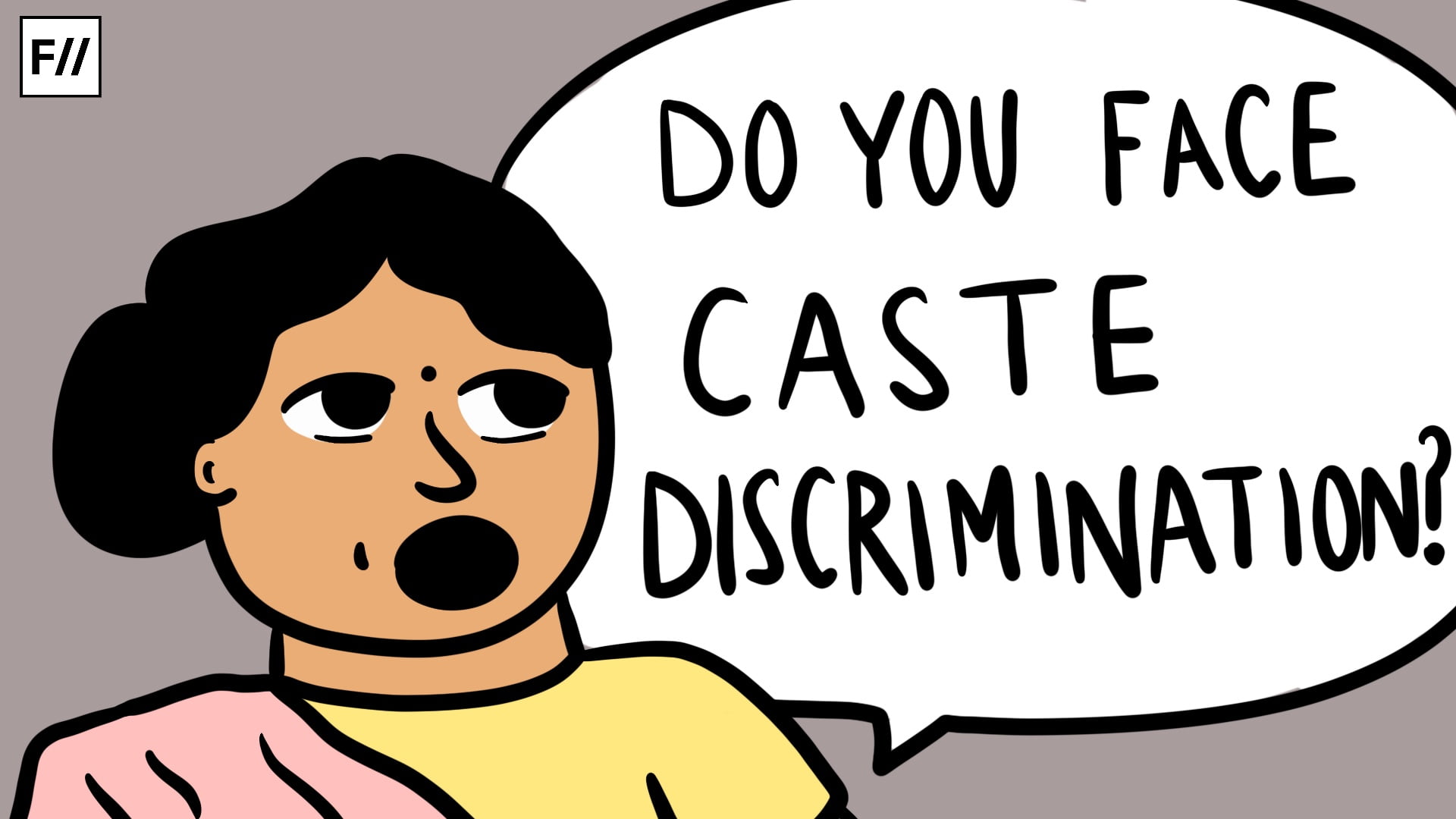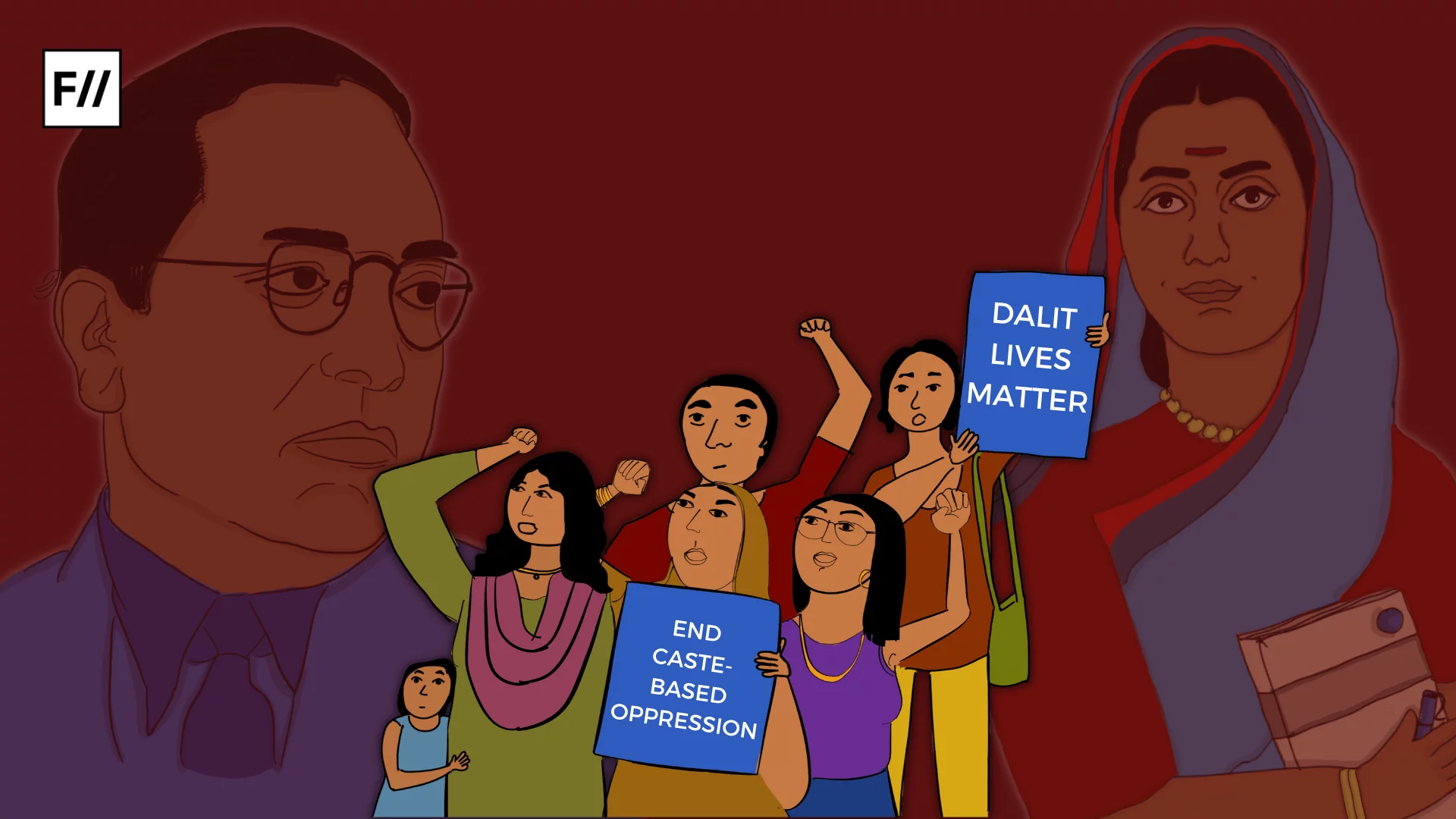Trigger Warning: Caste-based discrimination
Caste is woven into the Indian social structure, and any attempts at challenging it would incite resistance from the Brahmin Brotherhood. The recent Sidhi urination case involving Pravesh Shukla caught on camera and circulated millions of times proved that caste support surpassed any moral and cultural obligation in Indian society.
A video went viral on the 4th of July where a seemingly dominant man was caught urinating on a tribal man in Madhya Pradesh. The tribal youth sat slouching and the Brahmin man towered over him, urinating on his face and body. The video quickly went viral on social media and created an outcry. As a result of this, the MP government stepped forward and arrested Shukla.
Pravesh Shukla was booked under the NSA and some ‘illegal‘ portions of his house were bulldozed. The culprit’s family kept pleading and begging the authorities to spare their house. They accepted that the crime was heinous and deserved stern punishment but claimed that bulldozing a home could not be the punishment.
Support from the Brahmin community in the Sidhi urination case
What is disturbing is not the act itself, but the reactions it has ignited. The Brahmin community’s support cements the age-old belief of caste superiority and dominance. Shukla’s identity as a ‘pandit‘ is instrumental in garnering support for him. While the Brahmin Brotherhood has come forward to publicly proclaim their support for the man, the victim also seems to have folded under the pressure.
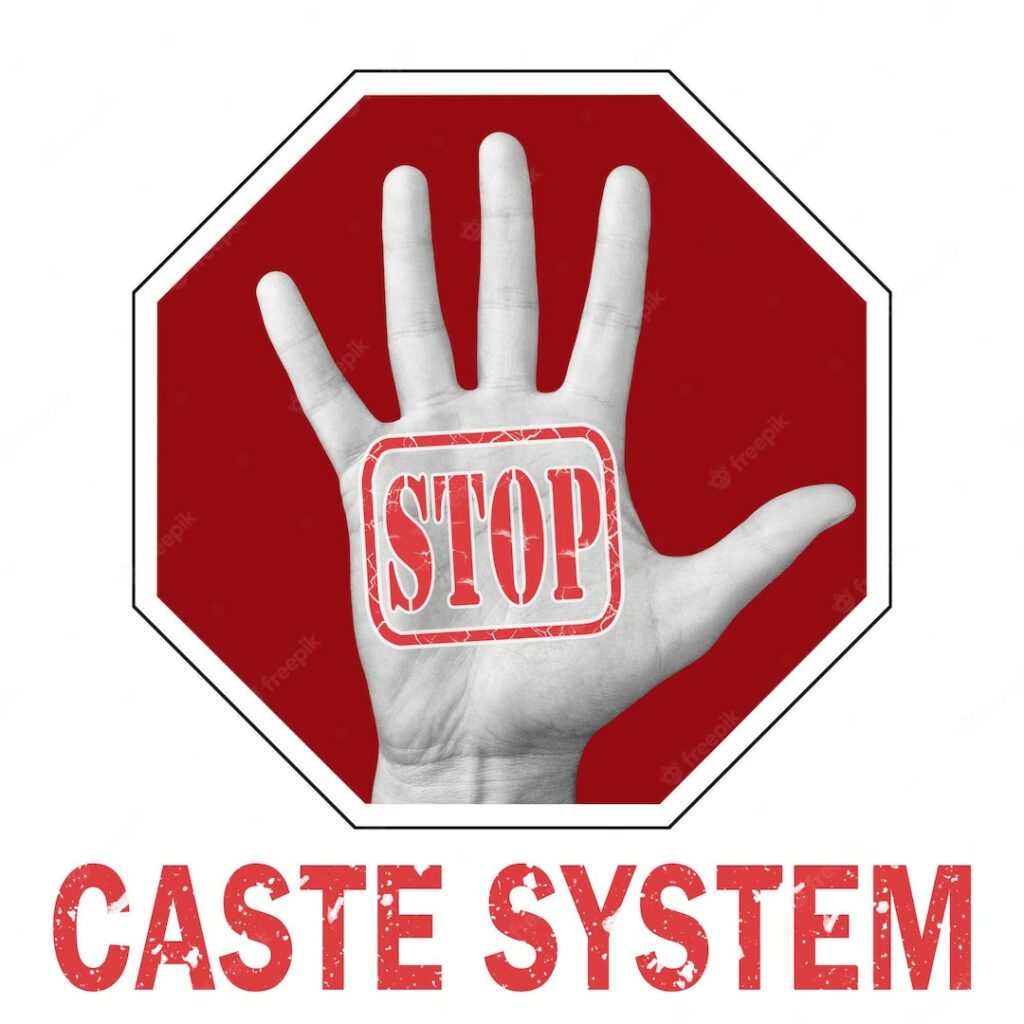
The victim, a tribal man named Dashmat Rawat, demanded Shukla’s release. After a number of political giants visiting him and showcasing tokenistic respect, Rawat has demanded Shukla be released from judicial custody. He claims his benevolence is because Shukla has realised his mistake. But what remains unsaid holds more significance than his words in this case. He tells, and The Print quotes, ‘He is a pandit of our village and that is why, I do not want to say more. It is my demand that the government just releases him.’
The casteist social conditioning
The heinous act and the reaction thereafter are the result of decades worth of social conditioning. The Brahmins were taught to be the superior caste. Since the Vedic period, they have been placed at the head of the society. The language and literature of India were scripted by them, for them. It is this continuous social conditioning partnered with a volatile political milieu that allows patriarchs like Shukla to act the way he did.
The conditioning is also evident in the servitude of Rawat. The tribal youth had to bear the humiliating act and then come forward to support the perpetrator because of the socio-political environment he is living in. The caste hierarchy is made apparent at every step of the way and internalised in the actions thereof.
A country with a Dalit woman president bears the shame of caste injustice and justification. The act is an upper-caste patriarch’s answer to the tall claims that political leaders make of ‘sab ka vikas’.
A country with a Dalit woman president bears the shame of caste injustice and justification. The act is an upper-caste patriarch’s answer to the tall claims that political leaders make of ‘sab ka vikas‘.
The mass support in favour of the Sidhi perpetrator
For the past few years, India has witnessed a wave of mass support for privileged criminals. The rapists of Bilkis Bano have been garlanded and celebrated, the Babri demolishers have been lauded, and the lynchers supported. But the Brahmin community coming in support of Shukla creates a new low for the social fabric as it encourages other Brahmin Brothers to commit heinous acts and get away with it.
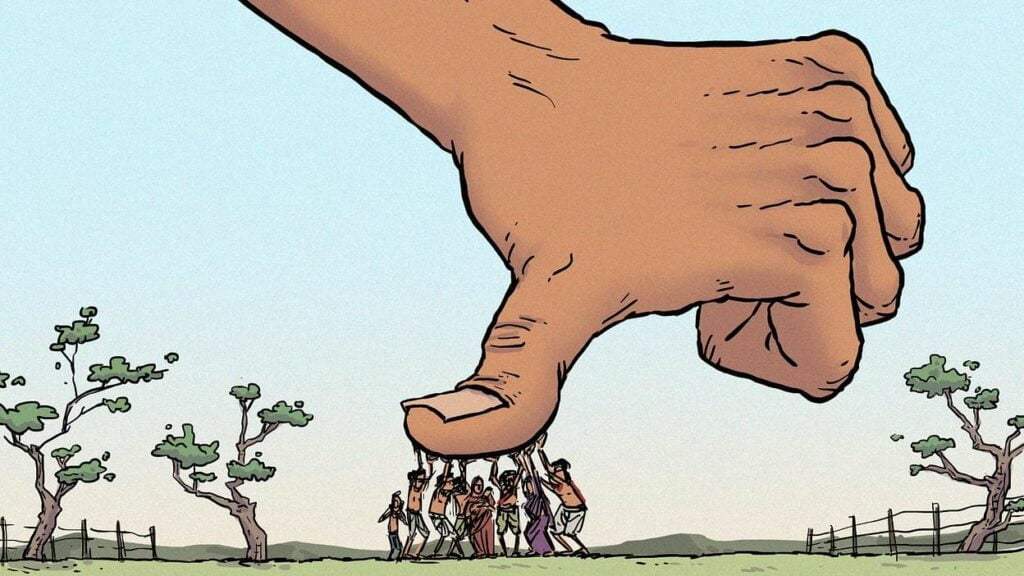
Pandit Pushpendra Mishra, state president of Akhil Bhartiya Brahman Samaj (ABBS) said, ‘The community strongly condemns Shukla’s act but it isn’t the right to punish someone else for a person’s actions. I assure complete help to his family.‘ A four-minute video was issued by Avinash Tiwari garnering public support for the Shukla family regarding the Sidhi urination case.
The support does not stop at appeals; monetary support was also offered to redeem the Shukla family and support them in their hour of need. The Sidhi district (Madhya Pradesh) unit of Akhil Bhartiya Brahmin Samajh has given Rs. 51,000 as financial aid to the family. The Brahmin fraternity claims that the government’s action of razing the house was politically motivated.
The bulldozer effect
The bulldozer has been used as a political symbol in the elections and the metaphorical masculine prowess it exudes is an added incentive. Elections are fought on the basis of this symbolism. Meant for demolishing the homes of enemies (preferably from a particular community), the bulldozer has been celebrated and revered, until the home it razed was of a fellow upper caste man.
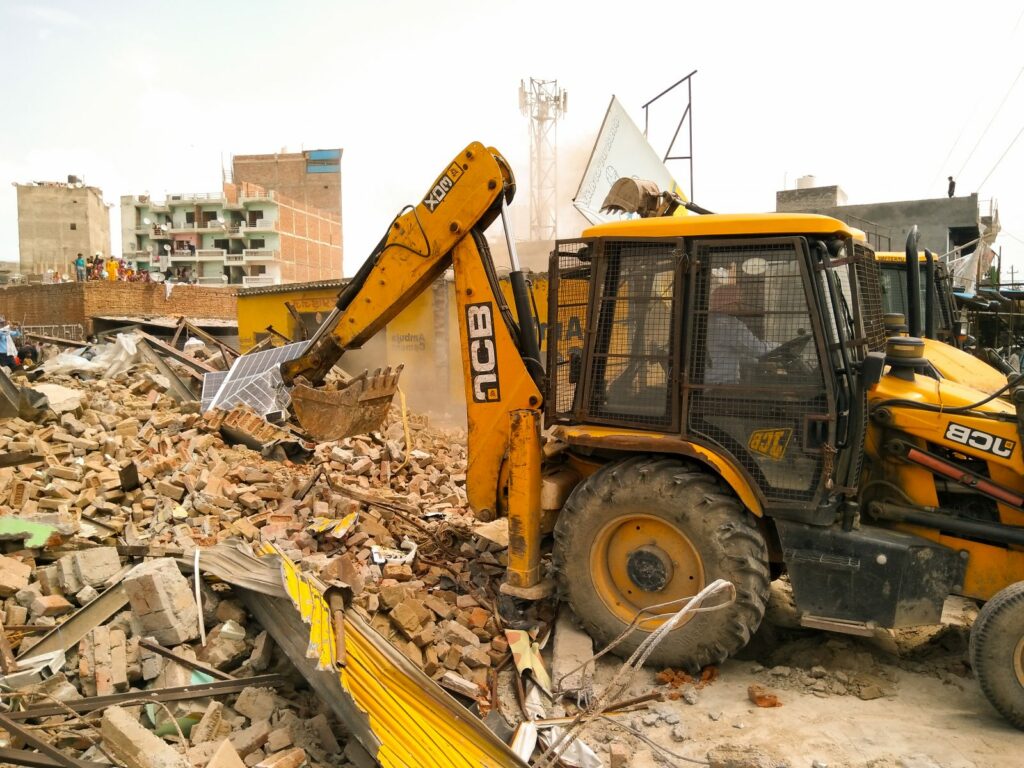
Any civil community must voice their discontent over justice that involves demolishing homes and disrupting families. The sentiment of punishing the entire family and lauding thus public spectacle has become a norm, but only until the families disrupted are from the ‘other‘ community. The Brahmin community never voiced their opinion when Atiq Ahmed’s home was razed. The convenient siding of the argument unveils the rotten bias of society.
The razed home: a sympathetic metaphor
Shukla’s razed home and wailing family incited sympathy in the hearts of many. Pravesh Shukla lived in the house with his parents, wife, and three-year-old daughter. His wife came to the public and demanded her home be spared. She claimed that the house was built by her grandmother and does not belong to Shukla or his family.
Amongst the fight for ownership, a shared sentiment was that the family was wronged by razing a part of their home. The sadistic pleasure that society felt when other criminals met the same result suddenly converted into sympathy when the home belonged to an upper-caste Brahmin.
A song dedicated to the pain of Ramakant Shukla, Pravesh’s father ‘Mat todo ghar mera’ was meant to gather support for him. Community WhatsApp groups were created where people began donating money for the Shukla family from all over the state. The family recounts, ‘Neighbours arranged for food for first couple of days.’
‘What is the harm in urinating?‘: Brahmins on the Sidhi urination case
The support did not stop at helping the family and sympathising with them. A narrative was built to rid Shukla of shame and guilt. The entitled Brahmin voices reverberated and proclaimed, ‘What is the harm in urinating? What harm does it cause?‘
When the harm in urinating on a fellow citizen can not be realised, how can we expect a change to come? The Brahmin Mahasabha leaders are in turn angry over not getting the collector’s appointment.
When the harm in urinating on a fellow citizen can not be realised, how can we expect a change to come? The Brahmin Mahasabha leaders are in turn angry over not getting the collector’s appointment. They even put up a donkey poster outside the Sidhi collector’s office. The gall of insulting a public servant and defending a heinous act is proof of caste being inherited in the social structure.
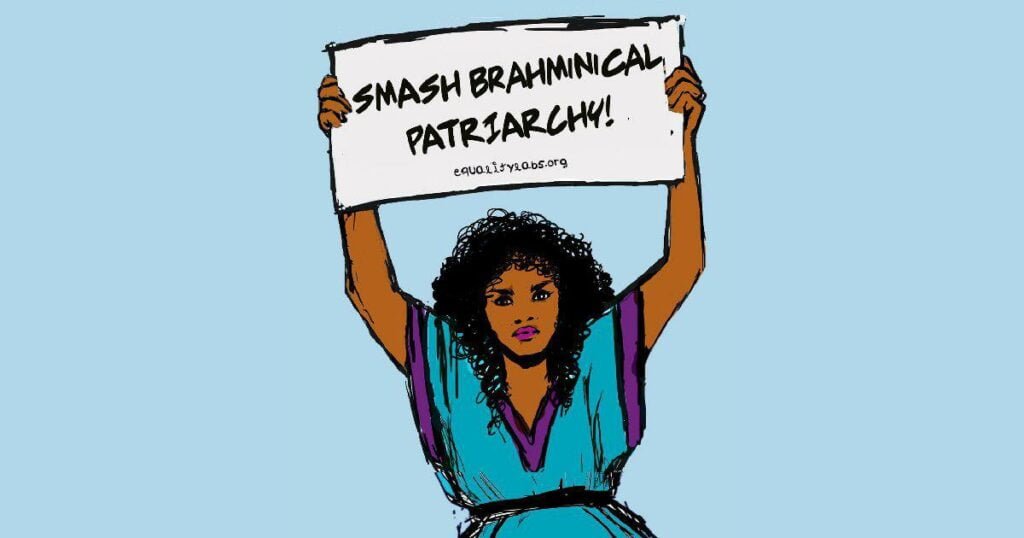
The Brahmin community even raised slogans against the Chief Minister for apologising to the victim, Dashmath Rawat. Kuldeep Bhardwaj, the National President of the All India Brahmin Mahasabha questioned the state about the victim. He claimed that the labourer was drunk in public which was a crime. He added that urinating on someone does not come under the purview of the law.
These arguments are a blatant show of the privilege that the upper caste holds in our society and politics. The Sidhi urination case is an embarrassment but it is not an isolated event. There have been several cases recently where caste superiority has made its presence felt by compromising the dignity of lower-caste people. Some have been asked to lick the feet of upper caste men, some have been beaten and some have been urinated on. The repetitiveness of such cases is the black mirror of our society. They indicate the rottenness in our state and point out the urgent need to rectify them immediately.
A deeper psychological understanding is necessary to understand the robustness of Shukla and the meek acceptance of Rawat. This case might have shaken the conscience of the nation for a few days, but they are too many cases like this and they are far too frequent.
A deeper psychological understanding is necessary to understand the robustness of Shukla and the meek acceptance of Rawat. This case might have shaken the conscience of the nation for a few days, but they are too many cases like this and they are far too frequent. We need to look at it from a stricter lens and understand that the brotherhood of upper-caste men is a curse we still bear in this country.
About the author(s)
Dr. Guni Vats is an Assistant Professor at the Department of English, Manav Rachna International Institute of Research and Studies. A PhD in Gender Studies, she is a renowned researcher, writer, and scholar.
